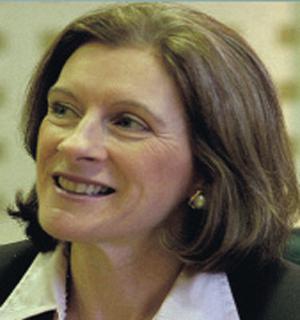ESRI slams prescription charges and National Treatment Purchase Fund

ESRI CEO Frances Ruane (pictured) chaired an expert group on Resource Allocation in the health sector set up by Mary Harney in April 2008. They have published two volumes of research as well as the report of the working group. Here are some interesting findings from the 800-page report. By Sara Burke.
The ESRI evidence volume produced new figures on Ireland's health spend compared to other countries. They looked across countries and across time and their findings show a significant increase in Ireland's allocation to health as a proportion of national income. It increased from 7% in 2000 to about 12% in 2010. In fact, their figures show that increases in Ireland were in line with other EU and OECD countries which increased their proportion spent on health in a very similar way.
It also showed that the increase was directly related to increases in national income; as national income rises, countries tend to spend more on health. However the rise to 12% can also be explained by a decrease in overall income rather than an actual rise in health spending. The report also found that we still spend comparatively less on health than many other EU and OECD countries.
Frances Ruane opened the conference on Tuesday last (19th October) with a damning analysis of the health system we have. The report found an unfair, unclear, unplanned, weak health system with poor governance and a very limited relationship between money allocation and population need.
The key recommendation of the Resource Allocation Working Group is to change the way we allocate the health budget. Currently, the vast majority of the health budget is allocated by a lump sum year on year. The group recommend moving to a system where money is allocated on the basis of population health need, for example, needs relating to age and gender. The HSE will begin to do this in 2011 as recommended by Anthony Staines of DCU.
The ESRI work highlights some of the contradictions in the system. For example, the official HSE policy is to shift care from hospital to the community even though the same care can be enjoyed for free in hospitals that has to be paid for in the community. The report recommends taking that and similar measures out of the health system. It also has strong recommendations in relation to chronic disease management based on evidence that if chronic diseases is managed well, the end result is better for the patient and costs less.
Interestingly, the ESRI is critical of the new prescription charges and also of the National Treatment Purchase Fund (NTPF). The ESRI have published some very strong analysis on the nonsensical nature of the prescription charge introduced for medical card holders; it does not make economic or health sense as it puts people off taking necessary medicine without raising much cash and could cost the system more in the long term.
This specific point was put to Michael Scanlon, Secretary General of the Department of Health. His response was: "We knew the evidence about prescription charges but we are faced with hard choices." That defence does not stand up as the measure does not make sense and in my opinion it is purely an ideological choice made by the Minister for Health, something the Secretary General should have admitted.
The Resource Allocation Working Group established by the Minister recommended the phasing out of the NTPF. The NTPF buys private care for those on long waiting lists in the public system. However Arnie Hill, a breast cancer specialist, speaking at the conference on Tuesday in a personal capacity, described the NTPF as the "biggest marker of inefficiency in the system", and that the it had all the wrong incentives. He said the group said it should be phased out but in fact "you should punish the people who supported the NTPF" and it should be immediately abolished.
